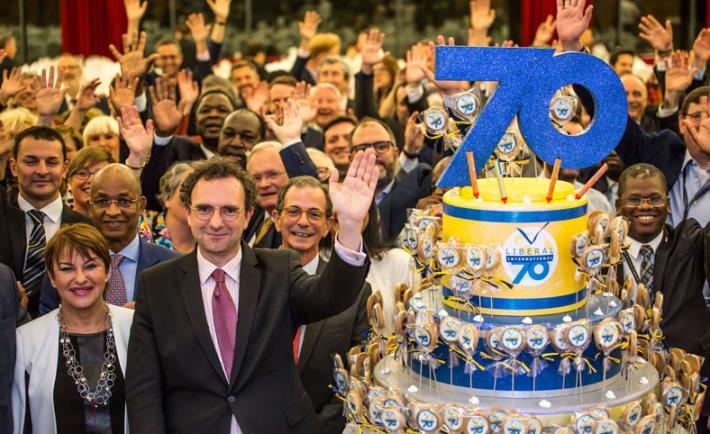A lot has been said and written about the #MeToo movement and how it continues to galvanize the voices of hundreds of women and men from around the world. Most strikingly, it is a strident call-to-arms for women to become the agents of their own conscience, bodies and destinies.
The sweeping victory for female candidates from diverse backgrounds in the recent U.S. midterm elections is a clear signal that women are rightfully coming forward to claim their space and power in society. I am on a research assignment at the National Democratic Institute from the London-based world federation of liberal and democratic progressive political parties known as Liberal International (LI). It’s been a special experience to be in the U.S. and see the way women have run and been elected in record numbers here, and then look across the globe to reflect on the similar progress among LI member parties. For example, in Sweden, the Centre Party, which ran on a feminist green agenda, saw a 60 percent increase in its new voters base from among the female population in the recent Parliamentary elections. In Malaysia, the People’s Justice Party secured the election of its co-founder, Wan Azizah Wan Ismail, as the first female Deputy Prime Minister in the country’s history. In Kenya, under the leadership of the Orange Democratic Movement, the Africa Liberal Network (ALN) adopted its ground-breaking Nairobi Declaration committing ALN member parties to work towards the full elimination and prevention of all forms of discrimination and violence against women and girls. In Senegal later this month, Liberal International is set to elect Hakima el Haite, the former Moroccan Minister of the Environment, as its second-ever female President and first from the Middle East and North Africa region.
It was as part of my NDI experience, which started three months ago, that I began to seriously contemplate what makes a political party inclusive. As a liberal, I have always viewed diversity, especially political diversity, as a strength rather than a weakness; as an advantage, rather than as a setback. However, making the arguments for meaningful inclusion of marginalized groups and women have historically been a sticking point for political parties in both the global north and the global south. This is because to do so marks a departure from the traditional, often male-dominated, power norms that characterize most political institutions and organizations.
Quotas, reserved seats for female candidates, women’s wings and diversity boards within political parties’ structures are meaningless if they don't achieve the end goal: giving women and minorities within the parties’ ranks true power and influence. We need to look beyond the numbers and ask ourselves the ultimate question: how can we change society – and with it political culture and organizations – so that diverse leaders become the norm rather than the exception?
As liberals from across the globe gathered to celebrate LI’s 70th anniversary and adopted the organization’s landmark Andorra Manifesto just over a year ago, one apparent conclusion became evident: parties and those who care about democracy must carry the torch and set the agenda for political inclusivity. We need to work harder at multiplying the voices of women and minorities so they can secure their rightful place at the decision-making table. If there is one lesson to be learned from the examples noted above, it is that political parties can and do have increased electoral success when they become truly representative of their societies. NDI’s 21st Century Political Parties Renewal Initiative has provided ground-breaking guidelines for political parties in this respect and one that I will surely be taking to the heart of Liberal International at the end of my secondment.
NDI has official standing with the following international groupings of political parties: Centrist Democrat International, Liberal International, Socialist International and the Progressive Alliance. Through these networks, NDI fosters peer-to-peer exchanges and consultations.

